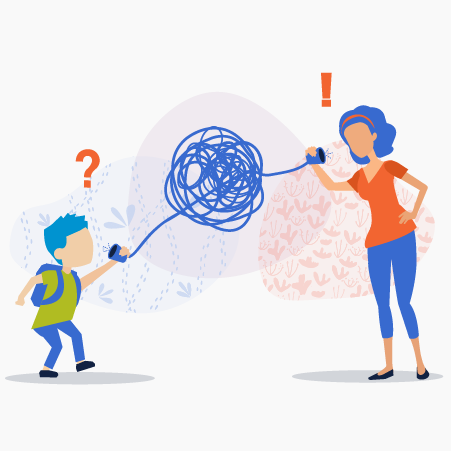 Dialectical behavior therapy teaches people to manage their ADHD symptoms using four basic DBT skills: mindfulness, distress tolerance, emotion regulation, and interpersonal effectiveness.
Dialectical behavior therapy teaches people to manage their ADHD symptoms using four basic DBT skills: mindfulness, distress tolerance, emotion regulation, and interpersonal effectiveness.
What are DBT Skills?
Dialectical behavioral therapy (DBT) training teaches DBT skills in four key areas: mindfulness; distress tolerance; emotional regulation; and interpersonal effectiveness. DBT is an effective treatment for many conditions marked by an inability to control emotions, including ADHD and mood and anxiety disorders.
Dialectical behavior therapy was originally developed by Marsha Linehan, PhD, a psychologist in Seattle, Washington, in the 1980s, to treat borderline personality disorder (BPD). BPD primarily involves emotional dysregulation. Because many conditions are marked by an inability to control emotions — attention deficit disorder (ADHD or ADD), mood and anxiety disorders, substance use disorders — DBT has been found to be an effective treatment for all of them. It has become a go-to treatment for ADHD.
What Is DBT for ADHD?
Thinking “dialectically” means taking a more balanced perspective on your thoughts, emotions, and life situations.
A central tenet of DBT is validation — accepting uncomfortable emotions and situations before trying to change them. By coming to terms with troubling thoughts and emotions, change appears possible, and patients can work with their therapists to create a plan for recovery.
DBT Skills: Four Key Areas
- Mindfulness. Mindfulness meditation for ADHD focuses on doing one thing at a time, in the present moment, with one’s full attention and with acceptance.
- Distress Tolerance. These skills help people tolerate negative emotions instead of trying to run away from them.
- Emotion Regulation. These skills help decrease the intensity of feelings without acting on them.
- Interpersonal Effectiveness. These skills help a person understand his needs in relationships and develop ways of dealing with friends and family.
How DBT Skills Help with ADHD Symptoms
Some of the ways DBT skills help people regulate their emotions include:
- Inhibiting behaviors, rather than impulsively reacting when experiencing an emotion (by practicing mindfulness)
- Refocusing attention through self-soothing and distracting skills, in order to prevent negative emotions from escalating
- Deciding on value-based action to help solve a problem (perhaps through asserting oneself), or managing the emotion effectively in other ways (through acceptance).
DBT Skills: Inattention
When you engage in mindfulness, you are practicing concentration. The more you practice something, the better you get at it. As the ability to concentrate improves, so will your memory, as you’re more focused on the one thing you’re doing in the present moment.
DBT Skills: Hyperactivity/Impulsivity
DBT skills help people learn to tolerate the moment, which means tolerating internal experiences (such as emotions), physical sensations (such as agitation and restlessness), and urges to fidget or interrupt others. By learning to tolerate these uncomfortable experiences, and learning to make more effective choices, people see that they can change.
DBT Basics
The DBT treatment process Marsha Linehan developed can be costly and lengthy, usually taking a year. Individuals can benefit from modified versions of the full program.
Excerpted from “DBT Skills: The Go-To Treatment for ADD?” by in ADDitude Magazine. Read the full article online for more details.
Source: ADDitude Magazine | DBT Skills: The Go-To Treatment for ADD?, https://www.additudemag.com/dbt-skills-add-adhd-treatment | Copyright © 1998 – 2023 WebMD LLC
A screening can help you determine if you or someone you care about should contact a mental health professional. Care Coordinators can arrange a free 30-minute Care Consultation so you can explore options with an expert. Call or email us at 650.688.3625 or careteam@chconline.org to set up an initial Consultation appointment.





